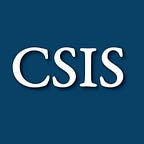Finding Consensus on U.S. Foreign Assistance
By: Daniel F. Runde, Conor M. Savoy, and Erol Yayboke
October 30, 2017
Earlier this year, the Trump administration issued an executive order that called on all federal agencies to review their practices and organization to improve efficiency and effectiveness. This order, coupled with a proposed cut of 30 percent to the Department of State and Foreign Operations budget, created the impression that the administration intended to fundamentally alter the structure and mission of U.S. foreign assistance. In an effort to present constructive, actionable ideas that the administration and Congress could use to increase the efficiency and effectiveness of U.S. foreign assistance, CSIS convened a bipartisan congressional task force of over 30 former senior officials from the State Department, Millennium Challenge Corporation, U.S. Agency for International Development (USAID), Peace Corps, and more. The task force was cochaired by Senator Jeanne Shaheen (D-NH) and Senator Todd Young (R-IN) and resulted in a report: Reforming and Reorganizing U.S. Foreign Assistance: Increased Efficiency and Effectiveness.
The report made three high-level recommendations:
- Maintain USAID as an independent agency overseeing federal foreign assistance efforts, develop a clearly articulated development strategy, and assign the administrator of USAID as coordinator of foreign assistance.
- Address duplication of effort and generate budget savings while maintaining functional coherence when appropriate.
- Modernize the personnel system, make the procurement system more efficient, and streamline reporting.
Reforms such as these will ensure that foreign assistance remains central to achieving U.S. national security objectives. As we developed that report, so too were several other institutions, including the Atlantic Council, Center for Global Development, Advisory Committee on Voluntary Foreign Aid, Modernizing Foreign Assistance Network , and former USAID administrators Andrew Natsios and Brian Atwood . Though there are some differences among these reports on the finer points of reorganization, all were unified around nine core principles, namely that:
- Development and diplomacy are complementary but distinct functions;
- There needs to be better alignment of development policy and operational functions in a lead agency (USAID);
- The lead agency needs full budget, policy, and planning authority;
- Foreign assistance should be driven by a comprehensive strategy;
- A development finance corporation should be created;
- Foreign assistance should align with local capacity and country plans;
- Focus should be on strategic transitions to broader economic partnerships where appropriate;
- There are broadly accepted inefficiencies and program constraints that can and should be addressed;
- Improvements to human resources, information technology, transparency, evaluations, and data are needed.
It is around these core principles that we have signed onto the “Redesign Consensus: A Plan for U.S. Assistance” with the principal authors of five other recent reports.
No one would argue that the U.S. foreign assistance architecture is perfect. Reform is needed; but that reform must be smart and should include elements of all of these core principles. Picking and choosing some reforms over others runs the risk of adding to inefficiencies inherent in the current patchwork system and ultimately could lead to greater ineffectiveness in programming.
We join our colleagues in calling for smart reform based on the principles outlined above.
Daniel F. Runde holds the William A. Schreyer Chair in Global Analysis and directs the Project on Prosperity and Development at the Center for Strategic and International Studies (CSIS) in Washington, D.C. Conor M. Savoy is a senior associate with the CSIS Project on Prosperity and Development. Erol K. Yayboke is a fellow and deputy director of the CSIS Project on Prosperity and Development.
Commentary is produced by the Center for Strategic and International Studies (CSIS), a private, tax-exempt institution focusing on international public policy issues. Its research is nonpartisan and nonproprietary. CSIS does not take specific policy positions. Accordingly, all views, positions, and conclusions expressed in this publication should be understood to be solely those of the author(s).
© 2017 by the Center for Strategic and International Studies. All rights reserved.
Photo credit: Emmitt Hawks/U.S. Navy via Getty Images
Originally published at www.csis.org.
